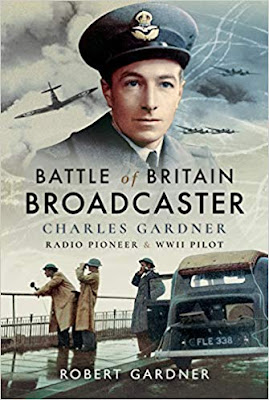In 1936 Charles Gardner joined the BBC as a sub-editor in its news department. Shortly afterwards, he was joined by Richard Dimbleby and together they became the very first BBC news correspondents.
They covered everything from shipwrecks to fires, floods to air raid precautions and, in Garner's' case, new aircraft. Their exploits became legendary and they laid down the first principles of news broadcasting - of integrity and impartiality - still followed today.
With the outbreak of war Charles Gardner became one of the first BBC war correspondents and was posted to France to cover the RAF's AASF (Advanced Air Strike Force). He made numerous broadcasts interviewing many fighter pilots after engagements with the Germans and recalling stories of raids, bomb attacks and eventually the Blitzkrieg when they all were evacuated from France.
When he got home he wrote a book AASF which was one of the first books on the Second World War to be published. In late 1940 he was commissioned in the RAF as a pilot and flew Catalina flying boats of Coastal Command. After support missions over the Atlantic protecting supply convoys from America, his squadron was deployed to Ceylon which was under threat from the Japanese navy. Gardner was at the controls when he was the first to sight the Japanese fleet and report back its position.
Gardner was later recruited by Lord Mountbatten, to help report the exploits of the British 14th Army in Burma. He both broadcast and filed countless reports of their astonishing bravery in beating the Japanese in jungle conditions and monsoon weather. After the war, Gardner became the BBC air correspondent from 1946-1953\.
As such, he became known as The Voice of the Air,' witnessing and recording the greatest days in British aviation history. But Perhaps he will best be remembered for his 1940 eye-witness account of an air battle over the English Channel when German dive bombers unsuccessfully attacked a British convoy but were driven off by RAF fighters.
At the time it caused a national controversy. Some complained about his commentary being like a football match,' and not an air battle where men's lives were at stake. That broadcast is still played frequently today.

No comments:
Post a Comment